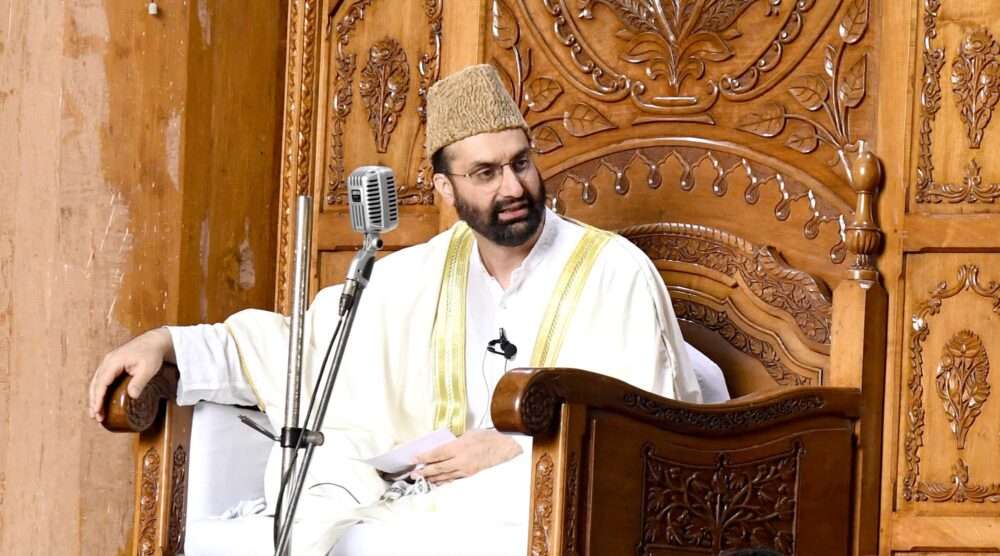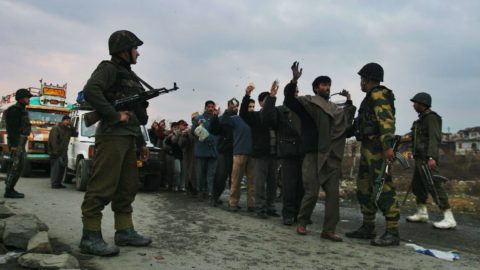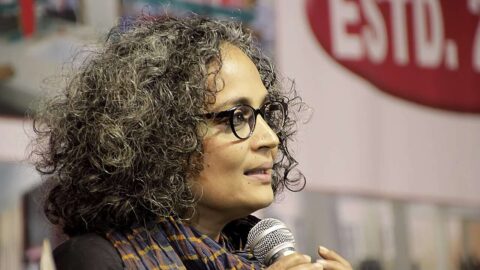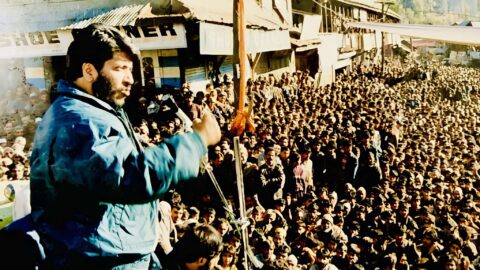A coalition of prominent Indian jurists, civil servants, and military veterans has accused the Modi…
India bars Eid prayers in Kashmir for seventh year
Move sparks condemnation over restrictions on religious freedom
SRINAGAR, Kashmir — For the seventh consecutive year, Indian authorities closed Kashmir’s iconic mosques on Eid al-Adha, preventing thousands of Muslims in Srinagar from offering prayers. Rights groups and local leaders condemned the action as a blatant violation of religious freedom.
On Saturday, the historic Jama Masjid and the open-air Eidgah grounds were locked down, despite plans for congregational prayers announced by the mosque’s administration.
Mirwaiz Umar Farooq, the region’s leading cleric and traditional prayer leader at Jama Masjid, was placed under house arrest.
“Eid Mubarak! Once again, Kashmir awakens to the grim reality: no Eid prayers at Eidgah, and Jama Masjid sealed — for the seventh straight year,” Mirwaiz shared on X, alongside images of police vehicles outside his residence. “In a Muslim-majority region, Muslims are denied the fundamental right to pray, even on their holiest occasion.”
These restrictions follow a pattern established after August 2019, when India revoked Article 370, stripping Kashmir of its semi-autonomous status and imposing direct central rule. Since then, mosque closures on major religious days, including Eid-ul-Fitr, Shab-e-Qadr, and Fridays, have become routine.
Kashmiris view these measures as a calculated effort to suppress their religious identity and stifle political dissent.
The Jama Masjid, a 14th-century landmark symbolizing Kashmiri resistance, remains under constant surveillance and frequent lockdowns.
“It is reprehensible and deeply insensitive to detain Mirwaiz Sahab on Eid,” said Iltija Mufti, political activist and daughter of former Chief Minister Mehbooba Mufti. “In India’s sole Muslim-majority state, the systematic denial of the right to worship is appalling.”
Critics argue that these actions are part of a broader strategy to silence Kashmiri voices, restrict religious practices, and curtail political expression, further entrenching India’s control over the region.




